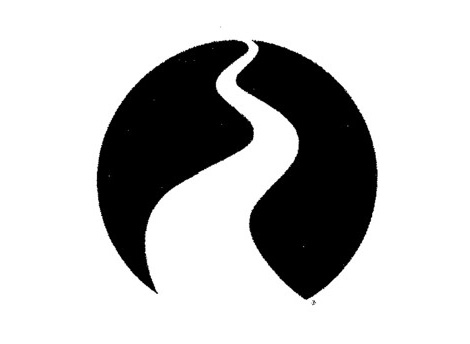Yoginâm presents a contemporary expression of a voice which has existed throughout human evolution in different cultural expressions. He calls it the Red Thread. This is not an ancient Truth, nor secret hidden Wisdom. It refers to “a very ultimate, an essence that living originates in, exists in and is sustained by”. Nâm Thinking is a reformulation of this primordial message in a language adapted to the thinking of the current age. Its purpose is to provide a skilful means for fulfilling the niche of human living.
In a range of articles, I intend to elaborate on some principle notions of this Red Thread, based on a reading of the The Book of Nâm[i]. My aim is to explore some of its implications for an anthropological appreciation of contemporary social and cultural processes. Some insights provided by Nâm thinking would illustrate a very distinct transcendental view on human being. It may suggest a different type of orientation and direction than we may witness in configurations of contemporary society.
A Transcendental Being
The vantage point is that by nature as complete human beings we are transcendental beings. We are a creature of Consciousness, for one. Then, we are what is not within the scope of Consciousness, yet being there, constantly present, all around, like the air you breathe. This is Awareness. Consciousness is where our experience of daily living occurs, you may say a horizontal plane. Awareness is beyond our experience, as a vertical sphere. We are beings of Awareness and Consciousness.
Your Universe – as in ‘All-ness-of-All’ – is an inter-connected, integrated wholeness, entirely multi-faceted as a ‘multiverse’. In what ‘it is’, it is ‘unknowable’. This sphere of unknowability is part of you and your world. Being unknowable, does not mean that you do not need to focus on it. It is not that you could just leave it, perhaps even nihilistically, focus on other things. Like a scientist may decide to leave elements out of his equations because he does not have data on them, or considers their impact conveniently negligible.
The transcendental unknowability inherent in your universe is elemental to your nature, and it needs to be integrated into your overall outlook. You should actively open for it, and allow its presence to impact living. There are aspects of our world that we may know about, but there is a lot, that is unknown (while some of it could be known when making an effort). And there is that which is unknowable. To know, to not-know, and unknowable are aspects of ultimate All-ness-of-All.
Nâm Thinking refrains from further depicting All-ness-of-All, where some mythologies may go further. The orientation of Nâm is unconditional Affirmation of All, embracing the very unknowability, and take one’s course through the affirmation. There is a mystery about man’s universe, constantly evolving, unfolding in front of his eyes, if he opens them. This unfolding is not of a beginning and an end, it is a circular, in-definitive process. The affirmation is embracing your universe of experience, as it is, as it comes.
In this state of being, you may subsist in peaceful acknowledgement of ‘What Is’, without the need to restrict ‘What Is’ to the boundaries of human understanding: Acknowledging peacefully its ‘All-embracing-ness’. This brings peace of mind, a sense of certainty and trust. It is also a source of humility and rejoicing. One who feels inclined to ignore this, risks states of insecurity, fear, or arrogance, which can have detrimental consequences in your universe of experience.
Intentionality of I/World
Disciplines of phenomenology (notably Merleau-Ponty) and quantum physics have already demonstrated that there is no human subject, existing as a separate entity, distinguished from an objective world around him. These supposedly subjective and objective worlds are intertwined in continuity in the very perception, experience of that world.
The human being and his world are in a constant movement. The human being lives in an ‘intentionality’ towards his world. Behaviour, thought and actions are intentional. This intentionality is a creative force, it shapes his world of experience. It is pre-objective and pre-reflective. Before he can even start reflecting on the world and know anything about it, he already is in an experience. He is already in a state of ‘being-in-a-world’.
Yoginâm calls it ‘I/World’: In our experience, there is a sense of ‘I’, and a sense of ‘World’. These are a reflection of each another, a continuity. They are the same dimension, hence ‘I/World’. There is no world full of independently manifested facts outside of you. You are that world you perceive and imagine. And you are creating and re-creating your experience of it. I/World is the very instrument of ordinary living, expressing the Red Thread.
While we can observe that quantum science and phenomenology have demonstrated that a sense of separation of subject and object does not reflect reality, many people do still live in a state where they experience separation. As if they are an isolated subject. In many ways their modern world is organised and conceptualised around this misconception, despite its ambitions of ‘respecting the science’.
One will see this expressed in contemporary tendencies towards appreciating life circumstances in dualistic terms, like good and bad, for or against, zero-sum attitudes, acts of exploitation. Responding to conflict situations with conflicting attitudes. Easy susceptibility to fear and a difficulty of relating compassionately to anything in that world which is different from you is another expression of this erroneous state of being. This often leads to a desire for unilateral sameness.
This basic dualistic stance would rightfully be called – as Yoginâm does – ‘Illusion’, an infant state of Ignorance in defiance of the basic reality of our lives as transcendental beings sharing in an all-interconnected world. A dynamic of continuous opening to new layers, spheres and perspectives.
For many people living in that dualistic, atomistic state, their primary reality becomes manifested in that world out there. This world is their object, separate from them, telling them what is real. That world, often rather delimited to a material bandwidth, may become an exclusive source of meaning. This is a specific dire consequence of not opening to spheres of transcendental awareness.
Meaning and Direction
“Meaning requires an Ultimate Ideal, without such an Ideal there is no direction”, Yoginâm assures. Furthermore, “this Ideal can never be a truth, because there cannot be a truth that is Ultimate”.
Without a living transcendental orientation, that world out there may be all you have. While that world is certainly not all that you are. Consequently, you are not fully living in the whole world of what is you. You may never feel truly fulfilled, and will never attain a state of permanent Well-Being. There will always be a sense of insecurity.
This springs from absence of direction, of true focus in a transcendental sense, which is distinct from a focus on making material progress, or advancing in social life, with its inevitable limitations and insatiability. This is an imprisoned state, which Yoginâm refers to as “Discordance” with the natural state of human being.
This widespread condition is reflected in the contemporary world, where a lot of things are clearly not well. Hence manifold crises to which sensible solutions do not appear. People who would be positioned to manage and resolve such Unwell-being in societies, cannot do anything about it, when they are themselves in this limited state of being.
Yoginâm has described the manifold crises as mere symptoms of this basic widespread predicament of Ignorance of the transcendental nature of human being. When this is too dominant collectively, it risks depriving the world of its humanity.
The problem with the state of ignorance, of insistence on illusion, is when your intentionality revolves around upholding it, it will need continuous effort to maintain the appearances of its supposed reality and surrogate meanings. This is an exhaustive process, when you cannot let it go. It tends not to fare well. It is like upholding a big lie; this usually requires more lies to cover the original one. Inapt building blocks of a house of cards. This cannot be the basis of a sustainable global world.
A way of Attunement
What is real, although unknowable in essence, is pervasive. I would consider that as a human being you are naturally aligned with what is real, what is true. Even if unknown, even if unknowable. It is the seat of Awareness, the heart of the matter. It allows your living to express a natural course, to follow natural law, to share in a natural state of being human.
Living in a transcendental orientation may have many valuable cultural and religious expressions across the globe and across time. The current value of Nâm thinking is that it provides a phenomenology of transcendental living. At a psychological level if you will. It exposes what it is made of, what is its strength and inherent truth. Therewith it lays the ground for a universal embrace.
Nâm is about the state of being that you direct yourself, as I/World, to living in. This starts with Intent. Nâm thinking highlights how you may manage experience through beneficial ethics, attitude, and behaviour, and may refine your capacity of perception. To align your state of being with the natural state of what you are: Awareness and consciousness. This will set the tone and touch on the resonance of living in Well-Being.
Yoginâm refers to the practise of “Attunement”. To attune your daily living to openness of “All-ness-of-All”, as an essence of all aspects of living. Attunement is a constant opening and listening. Being receptive to, and actively engaging a natural course in living as expressing the Red Thread.
For Yoginâm, Attunement refers to both an advanced state of human living, and to the endeavour to reach such an advanced state. Such states are recognised by the emergence of unconditional happiness, joy and bliss. Ultimately there is Well-Being, a state demonstrating unconditional contentment in living.
Integrating this transcendental orientation in our lives is a psychological necessity, Yoginâm entrusts us, since it is integral to what we are as complete human beings. The cultural ‘framework’ that helps shape this orientation is in principle of no significance, as long as it allows a living orientation. A non-dogmatic consistent opening, a monistic relationship of you and your world. Not representing ‘a truth’, which one may need to defend, but fostering Awareness.
In my view, any cultural framework guiding human experience in a social context, to be sustainable, needs to facilitate such a transcendental orientation, a decided focus on a state of Well-Being. Generating psychologically healthy, and strong human beings.
Without facilitating a connection to our transcendental nature, a culture may create people without a real sense of direction. In search of surrogate meanings, that may only slightly echo a distant sound of what would resonate with man’s transcendental nature. Never quite satisfactory.
I feel that especially the Western world is in need of this, but finally the world globally is, in order to solve the illnesses and deceptions of our time. To find direction, overcoming dualities, peaceful acknowledgement of the whole as whole.
Such a transcendental orientation could generate a profound ground of interconnectivity between cultures and civilisations on an ethical level, a source of sharing in universal compassion in a multi-layered world. This would be, in the words of Yoginâm, “an ethics that is grounded in the natural essence of the Red Thread”.
27 May 2022
[i] Yoginâm, The Book of Nâm (2020), Nâm Publishing



